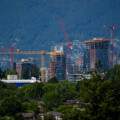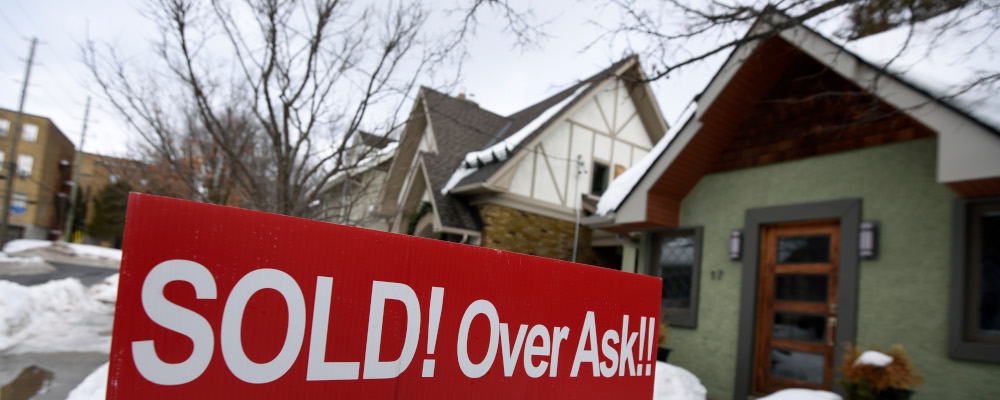Based on the Trudeau government’s recent budget,Making Housing More Affordable there’s some good news and some bad news on the housing policy front. The good news is that Ottawa explicitly recognized that Canada needs more housing units, in-line with evidence that Canada is dead last in the G7 in terms of the number of housing units per person.“Canada has the lowest number of housing units per 1,000 residents of any G7 country. The number of housing units per 1,000 Canadians has been falling since 2016 owing to the sharp rise in population growth. An extra 100 thousand dwellings would have been required to keep the ratio of housing units to population stable since 2016—leaving us still well below the G7 average.” https://www.scotiabank.com/ca/en/about/economics/economics-publications/post.other-publications.housing.housing-note.housing-note–may-12-2021-.html The bad news is that Ottawa is throwing fuel on the fire by stimulating the demand side of the housing market.
Prices in housing markets, like all markets, are set by supply and demand. A sharp increase in the quantity of housing units built should put downward pressure on housing prices. By contrast, an increase in the demand for housing units should increase the price of housing. Given the rapid escalation in housing pricesTeranet–National Bank House Price Index not only in Vancouver and Toronto but in other parts of the country that used to be somewhat immune to rapid price appreciations, it’s pretty clear Canada needs more housing units.
The Trudeau government, unfortunately, is targeting the demand side of the market in two main ways.
First, a two-year freeze on foreign homebuyers, which is unlikely to move the needle on the demand side since most people who buy homes in Canada are Canadian (in other words, not foreigners) or are exempt from the ban (foreign students, for example).
Secondly, and most importantly, a new Tax-Free First Home Savings Account, which will actually increase housing demand. The account is essentially a hybrid of a Tax Free Savings Account and an RRSP. Contributions to the account are tax deductible (like an RRSP) but withdrawals are tax exempt (like a TFSA). This means that savings for home down payments will be more tax friendly than retirement savings. In other words, the federal government is incentivizing people to allocate more money to the housing market precisely when it’s running hot.
The new savings account also means that, at the margins, some people will contribute money to down payments that they might otherwise put into a TFSA or RRSP. In other words, it will encourage people to concentrate more of their assets into housing rather than diversifying their assets by investing in bonds and equities. It’s not clear why we should want people to be more reliant on high housing prices to fund their retirements.
Of course, this new account might seem appealing to some people locked out of the housing market. But adding more participants to bidding wars doesn’t help buyers in the end—it helps sellers by allowing people to bid up prices even more. Giving more money to 10 people bidding on nine houses doesn’t make a tenth house appear.
To be fair, the federal government has a limited set of tools at its disposal to deal with housing prices. But those tools do exist. For instance, there have been proposals from the Conservative Party to tie infrastructure spending to increasing housing density.The conservative case for federal intervention in housing And even this latest federal budget includes a Housing Accelerator Fund aimed at cutting through red tape and local NIMBYism. One proposal is a stick, the other is a carrot. But they both show how Ottawa can help boost the housing supply. That isn’t to say that we should let municipal and provincial governments off the hook—these two levels of government have a great say in the amount of new housing that gets built. But we shouldn’t pretend that Ottawa is a passive victim of circumstances either.
In the end, however, the only thing that will really move the needle on housing affordability is building more homes. While the Trudeau budget includes measures that will hopefully encourage more supply, they’re undermined by new policies that encourage more demand. Throwing water with one hand and gasoline with the other isn’t likely to put out the fire.
Steve Lafleur is a senior policy analyst with the Fraser Institute.
Recommended for You

‘If you build it, they will come’: Why development charges are Canada’s real housing constraint

‘Election fever?’: Hub Politics on if Canadians will be headed to the polls this spring

‘A constant bombardment’: MP Garnett Genuis on the problem of MAID coercion

Tale of two provinces: Alberta gains jobs as Ontario loses 67,000 positions



